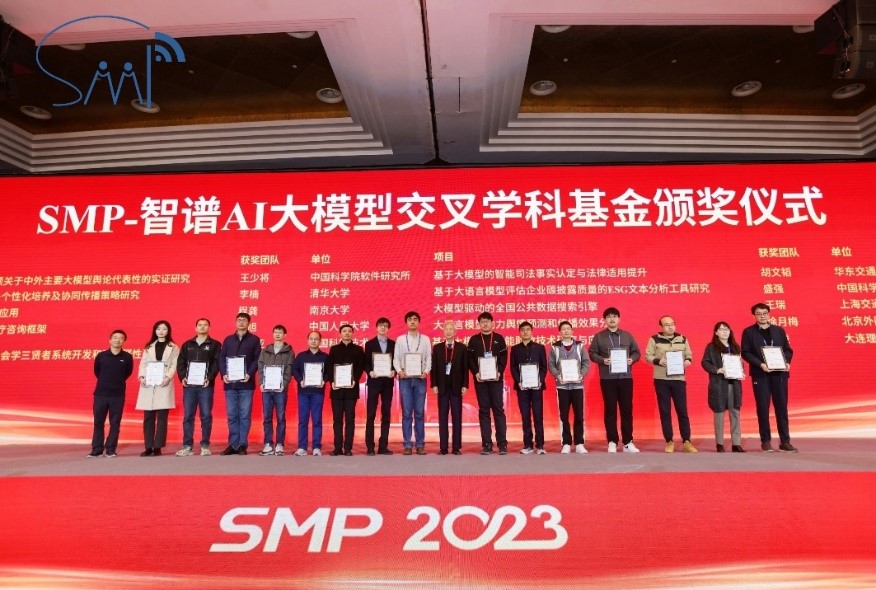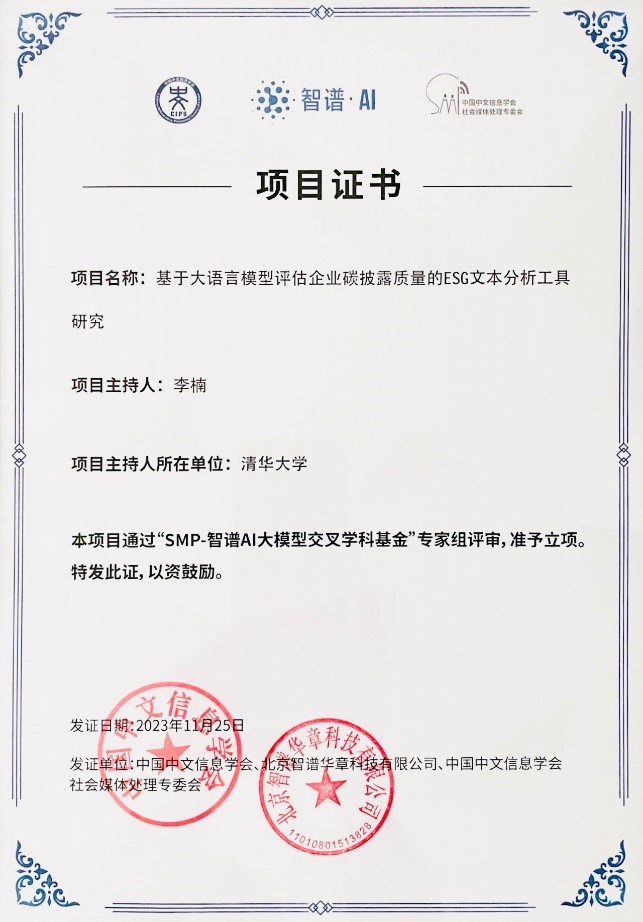On November 27, 2023, the research project led by Associate Researcher Li Nan from the School of Environment, titled "ESG Text Analysis for Assessing Carbon Disclosure Quality Based on Large Language Models", has been honorably funded by the SMP (Social Media Processing)-ZHIPU AI Large Language Model Interdisciplinary Fund.
The SMP-ZHIPU AI Large Language Model Interdisciplinary Fund was co-launched by the Social Media Processing Committee of the Chinese Information Processing Society of China (CIPS) and Beijing Zhipu Huazhang Technology Co., Ltd., and is the first of its kind in China. It is dedicated to exploring, supporting, and advancing research and innovation where large language models intersect with various fields, with the aim of fostering an organic integration of large language models with a wide array of disciplines. The project led by Associate Researcher Li Nan is the sole initiative within this fund that concentrates on the domain of environmental sustainability, and it signifies a groundbreaking exploration of the application of large language models in environmental science.

Award ceremony (Li Nan, the eighth from the left)

Certificate of the awarded project
Amidst the changing climate, environmental regulation faced by corporations is becoming increasingly stringent. Consequently, the importance of Environmental, Social and Governance (ESG) reporting grows more prominent, with a spotlight on corporate carbon emissions performance. However, when businesses seek to trace the carbon footprint throughout their product lifecycles, the involvement of numerous supply chain entities poses challenges for data collection and disclosure, which makes ESG reports a "black box". Such non-transparency has negatively impacted how consumers, investors, and regulatory bodies evaluate corporations. Therefore, achieving transparent and detailed carbon disclosure is crucial for enhancing corporate environmental responsibility, increasing societal recognition, and improving the ESG ecosystem.
To encourage companies to actively engage in carbon disclosure and improve the trust of rating agencies and the public in corporate ESG reports, this project will focus on carbon emissions issues and systematically build a multi-dimensional analysis model to evaluate the quality of carbon disclosure in corporate ESG reports. The project will also provide an intelligent analysis tool based on large language models to perform smart analysis on the quality of carbon disclosure in corporate ESG reports. Through these measures, the project aims to promote deep integration and mutual support among disciplines such as environmental science, data science, and artificial intelligence.





